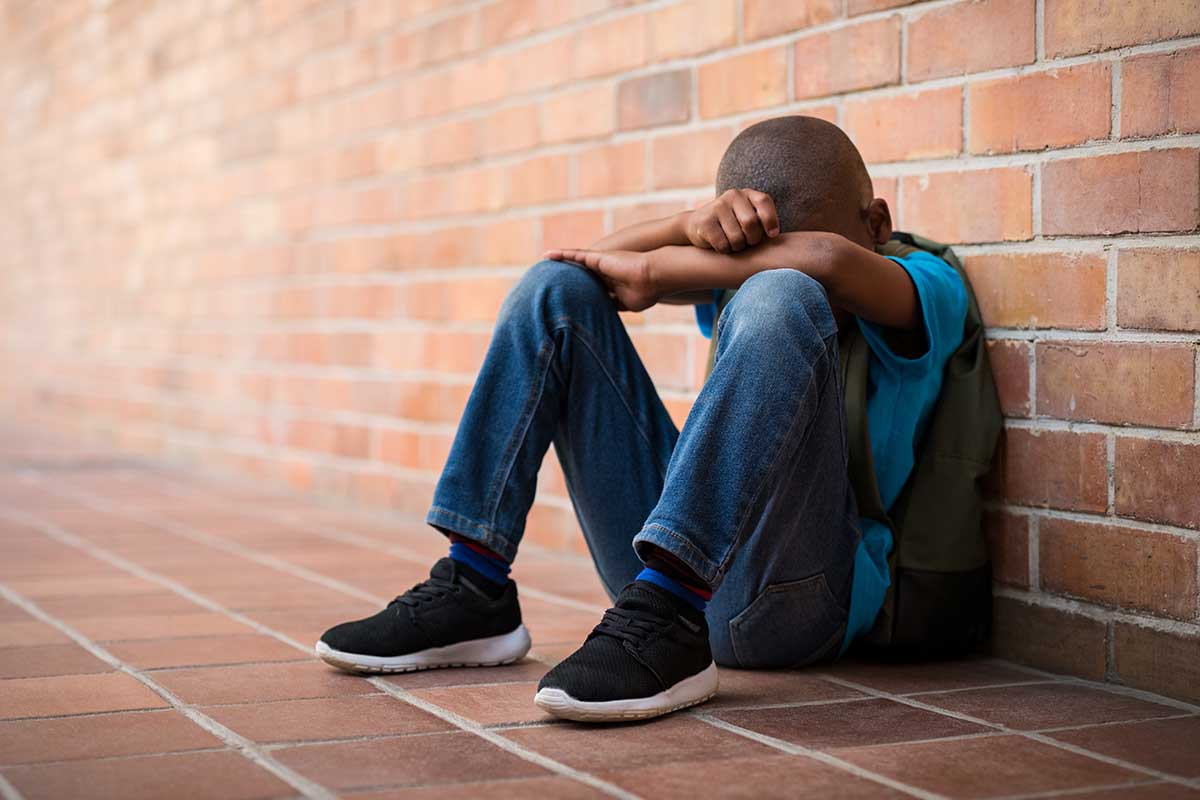An estimated 1 in 7 U.S. children experiences abuse every year, and that can have lasting implications for their mental health.
Child Abuse Increases Risk of Mood Disorders
Research has demonstrated that exposure to childhood maltreatment, such as abuse or neglect, at any stage of development can have long-lasting consequences, including an increased risk for mood, medical, and substance use disorders.
Depression
Childhood maltreatment has been linked to a greater risk and earlier onset of depression, a greater number of depressive episodes, and increased depression severity.
One meta-analysis revealed that 46% of individuals with depression report childhood maltreatment.
Childhood maltreatment has been linked to increased risk for suicide attempts and comorbidities, including anxiety disorders and PTSD, in individuals with depression.
Studies have also shown that a history of childhood maltreatment is associated with poor depression treatment outcomes.
Bipolar Disorder
Patients with bipolar disorder also report high levels of childhood maltreatment, with estimates as high as 57%.
Childhood maltreatment has been associated with an earlier age of onset and greater vulnerability to bipolar disorder.
Studies have found that physical and sexual child abuse were associated with increased risk for first-onset and recurrent mania independent of recent life stress.
Childhood maltreatment is associated with greater frequency and severity of bipolar disorder mood episodes—both depressive and manic, greater psychosis severity, and greater risk for comorbidities, such as anxiety disorders and PTSD, rapid cycling, inpatient hospitalizations, and suicide attempts.
Learn how to recognize and report child abuse.
Timing of Child Maltreatment Can Worsen Outcomes
Although childhood maltreatment at any age can result in long-lasting consequences, childhood maltreatment that occurs earlier in life and continues for a longer duration is associated with the worst outcomes.
Exposure to early maltreatment, especially during preschool (between 3–5 years of age), was most strongly associated with depression.
Additionally, sexual abuse occurring during early childhood, compared to adolescence, was reported to be more strongly associated with suicidal ideation.
Emotional abuse and neglect occurring between 8–9 years of age through adolescence (10-19 years of age) increases depression symptoms.
Child Maltreatment Increases Risk of Substance Abuse
Children who experience maltreatment are also at increased risk for the development of substance use disorder.
Individuals who experienced childhood maltreatment are at risk for an earlier initiation into drinking, faster increases in heavy episodic drinking during adolescence, and persistently elevated heavy episodic drinking throughout adolescence and young adulthood.
Childhood emotional, physical, and sexual abuse have each been associated with increased risk for tobacco use, alcohol use, illicit drug use, and polydrug use.
Studies have shown that adolescent girls with a history of childhood sexual abuse are approximately five times more likely to be heavy polysubstance users compared to adolescent girls without experiences of childhood sexual abuse.
Though numerous forms of childhood adversity have been linked to increased risk for substance use, studies have found that child maltreatment uniquely predicted persistent alcohol dependence in adulthood over and above other forms of childhood adversities, such as parental death, incarceration, or divorce.
Understand the difference between discipline and abuse and know when to report.
Mandated Reporters Can Help
The long-term mental health impacts of child abuse can be devastating for children who experience maltreatment. For medical professionals, therapists, and others in caregiving roles, these findings underscore just how critical early intervention and prevention can be.
Mandated reporters are in a unique position to take action and potentially prevent these outcomes from occurring. Whether you’re working in a clinic, hospital, school, or private practice, mandated reporters can recognize the signs of abuse, take action, and connect families to resources that can help.



